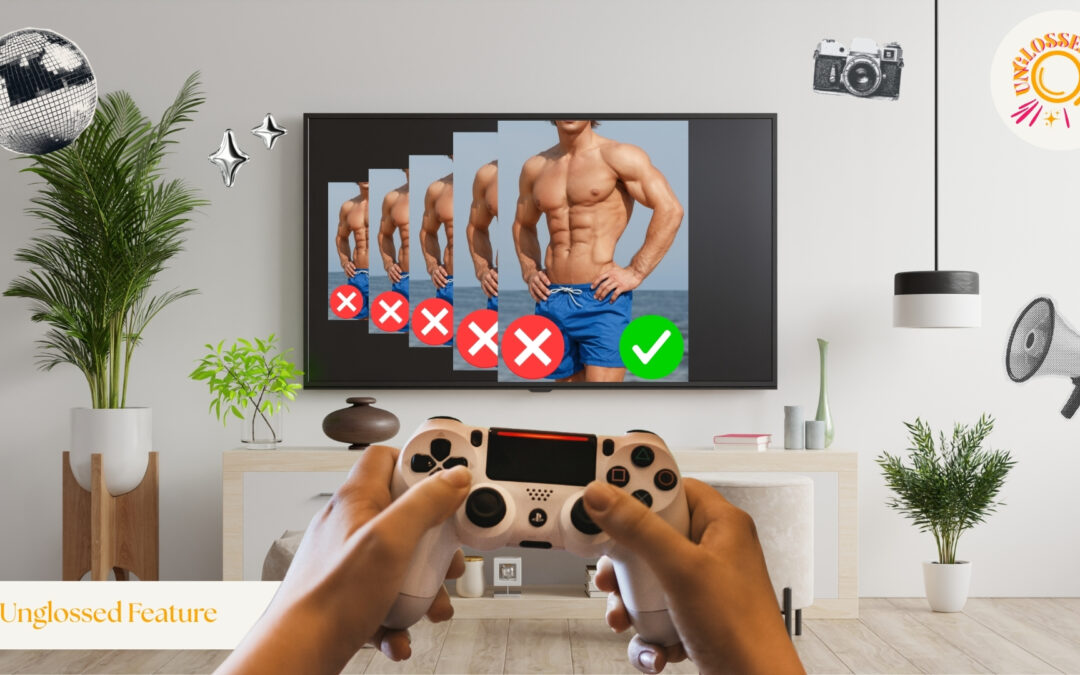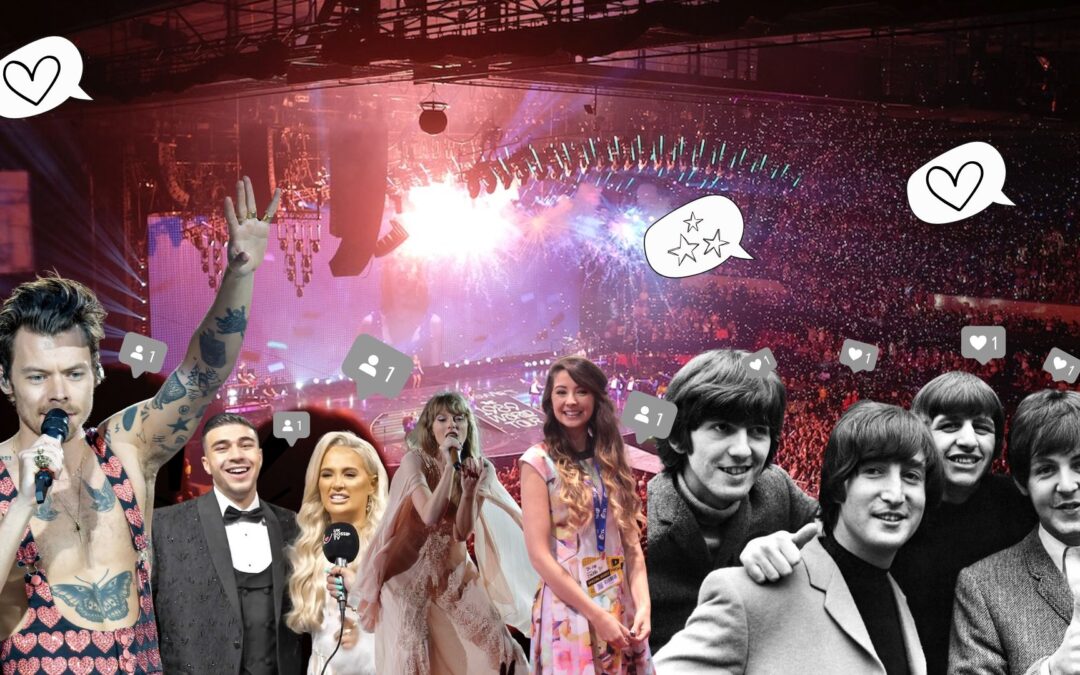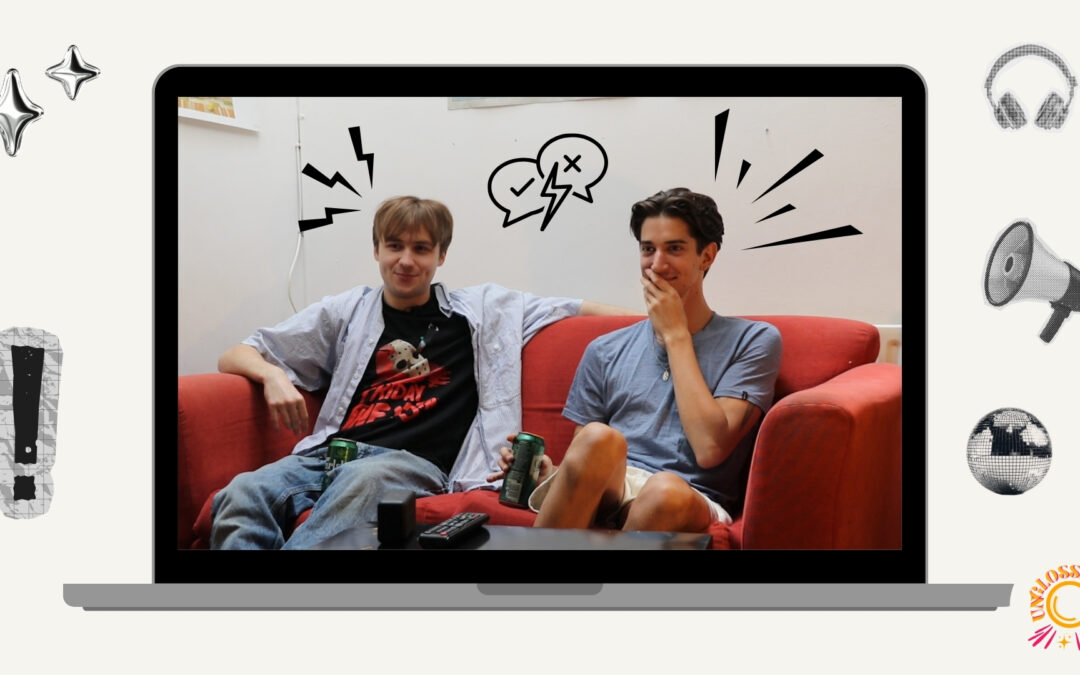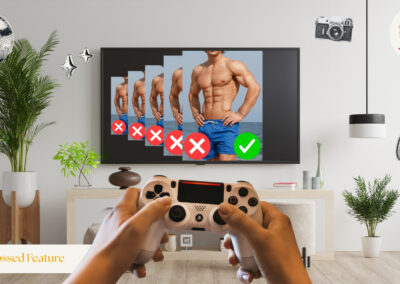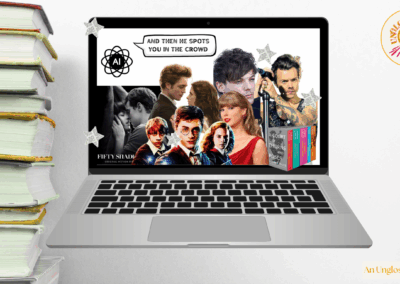The BBC hit, Fleabag, doesn’t romanticise sex, it shows how sex is used to cope and sometimes disappear. With therapist insight, Unglossed explores Gen Z’s relationship with sex, intimacy and avoidance.
Phoebe Waller-Bridge’s hit comedy-drama, Fleabag, has captured a loyal and deeply invested audience. In just two seasons, the show became a raw portrayal of female desire not because it romanticised sex, but because it reflected how real people might use it. To escape, to punish, to feel desired or even to feel anything at all. It was funny and messy and emotional all at once, which meant it hit home for a lot of people. One group in particular is Gen Z, a generation which has been told sex is freedom whilst also wrestling with feelings of disconnection.
Hookup culture seems to be thriving, online at least. But more and more people are talking about fear of intimacy and confusion around self worth. There’s even been a rise in interest around celibacy with Google Trends data showing a 90% increase in searches for celibacy in the UK. Fleabag offers no solutions to these issues, just a relatable mess to see yourself in.
Psychosexual and relationship therapist, Becky Crepsley-Fox says the show’s depiction of Flebag’s sexual interactions is fairly performative, “We can see with her looks to camera, she’s using sex as a performance throughout the entirety of the show in a way, she has this wall up, except for with the priest where she lets her wall down a little bit. The way she goes into dating is portrayed in a way that she just wants sex and she just wants to have a fun night. That’s probably a defense mechanism and she’s using sex as a way to feel better about herself, to get a dopamine hit or ego boost.”
Some people think Fleabag could be dissasociating. According to the American Psychological Association, it is “a defense mechanism in which conflicting impulses are kept apart or threatening ideas and feelings are separated from the rest of the psyche”. Becky says, “As we saw when she was talking to the camera through the fourth wall, that’s a clear example of her not being in her body, not being in her senses. It’s like how we might be in our head or thinking about things and not being completely present is that exact same example, but just to the viewers.”
And, in fact, disassociating can be a real issue for people, especially in intimate situations. Becky says, “Dissociation as a mental health condition, is when people are so dissociated that they don’t really have much time where they’re in their body. Because sex is so heavy for a lot of people, they go into those activated states in the nervous system like fight , flight and freeze responses. It’s where the body is being pumped with adrenaline and cortisol because of the nature of our nervous system trying to keep us safe, in that moment we are automatically dissociated.”
Although Fleabag isn’t necessarily swiping on dating apps or outwardly talking about ‘hookup culture’, the show mirrors a lot of the contradictions young people feel about it. It’s supposed to be liberating, but in reality a lot of people feel like something is missing. Becky says “I don’t see anything wrong with the hookup culture in itself. I don’t see anything wrong with people having casual sex in a way that makes them feel happy and content and fulfilled. Where it is problematic, is the lack of conversations around what are we expecting from this interaction?
And it might be technology that makes it harder for Gen Z to navigate, “The problem is with hookup culture in the digital age, it’s even more intense if those conversations aren’t happening because it’s that idea of it being easy to connect and speak to each other now. We’re so accessible because of social media and the internet, we can stalk them on Facebook and Instagram and drive ourselves crazy wondering why they’re not responding.”
With hookup culture prioritising detachment, it does add to the idea of people using sex as a performance, a way of trying to be something they’re not. “For women and girls, there’s this idea that we have to be the cool girl. The ‘cool girl’ has detached sex and doesn’t get upset if her guy doesn’t come home after a night out. Fleabag might be playing into that.” Throughout the show, Fleabag is detached from her intimate relationships, there is no real depth except for with the Hot Priest. Even though she had sexual desires for this relationship, it wasn’t one rooted in sex.
Even if people are playing into the cool girl role in real life, that doesn’t mean they’re genuinely happy to be it. “Most people, not just women, crave someone to help and support and nurture us but maybe that doesn’t look as cool or independent. We say ‘I’m an independent woman’ like that’s something to strive for and that’s not necessarily a bad thing, but I think we’re aiming for interdependence where you rely on people for some things, but not everything.”
Even the relationship with the priest was complicated for Fleabag, potentially more so. Becky says, “With the priest, she liked him more because nothing could happen. It’s avoidance because she’s going after someone who can’t fully love her back. Although he probably does have some feelings for her, it is impossible for them to have that relationship. So, that means she doesn’t need to change. She can stay avoidant and then she can feel that he’s the one who doesn’t want her. It’s a safety mechanism. But it’s all happening internally, she’s not having those thoughts consciously.”
This aligns closely with attachment theory, which has become a huge topic of discussion online for Gen Z. It explains how early relationships with caregivers change the way we connect with others later in life. You can be either secure, anxious, avoidant or disorganised. Fleabag sits in the ‘avoidant category’, but potentially also the disorganised level. She is fearful of abandonment and feels conflicted in relationships.
Becky says people can confuse the desire for connection or validation with the desire for sex, but it’s not necessarily something people should worry about. “As long as it makes them feel good and they’re doing it in a way that is in alignment with their values and is in alignment with their wider desire of sex, then it’s okay if they can’t distinguish between desire for validation or sex. If they’re getting that ego boost, but they’re going against their values or using unsafe behaviour, then that’s when it might be an issue. It is really tricky because eroticism is so different for everyone.”
Shame is a huge factor in Fleabag’s life, especially around the things she did to her best friend, Boo before she passed away. Becky points out how sex is sometimes used as a method of self punishment. “Most of the time it’s not a conscious thing. Lots of people use sex as a way to shame themselves. So it might be the thought ‘I’m a bad person, I do bad things’. It’s a way to get that confirmation of what you already believe about yourself.”
If Fleabag were to step into Becky’s office tomorrow, she would say “We should work on her traumas, if we do, she might not play out that avoidant strategy. Everyone has the potential to be in a secure place. We just need to work on what’s inhibiting her from doing that. We would work on why it’s scary to be in a relationship, what benefit she gets from having casual sex and can those benefits be replicated in a long-term relationship?”
Ultimately although Fleabag might not give any definitive answers, Becky thinks it makes people feel seen. “Anything that can normalise people’s experiences is good. Lots of people will watch Fleabag or shows like Sex Education or Euphoria and they might think, ‘That’s similar to what I do.’ Even though it might not give them definitive answers, just knowing ‘I’m not alone in this’ can be really helpful.”
Fleabag resonates so deeply with its viewers because it’s not scared to show the reality of sex and relationships. The gritty and less polished details that shows so often gloss over. In a culture where detachment can often be mistaken for empowerment, the show offers another narrative. The need for closeness and vulnerability isn’t a weakness but human.

You can find out more about Becky here.

